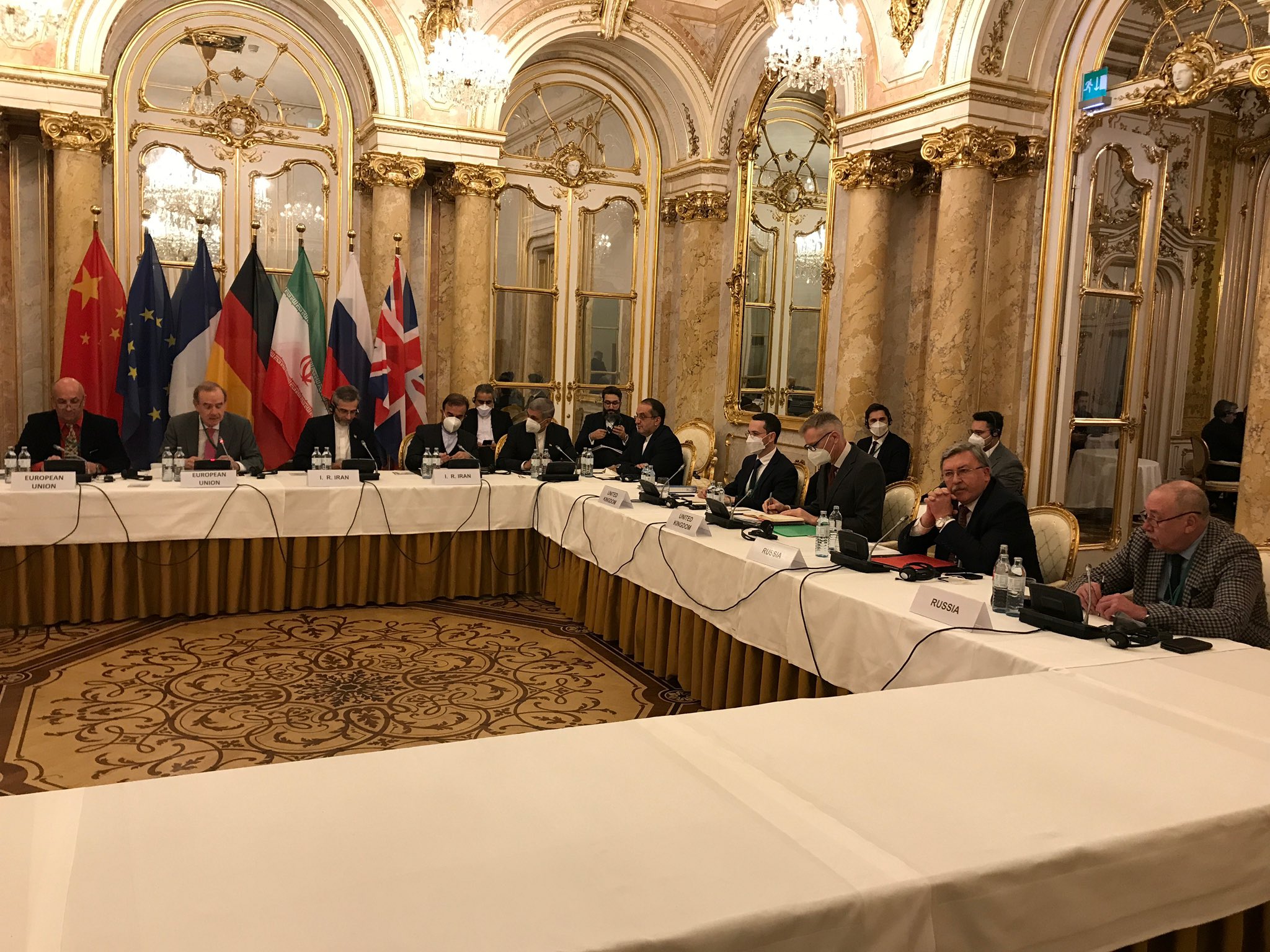The latest round are focusing on the lifting of sanctions.
Talks aimed at restoring the 2015 Iran nuclear accord resumed in Vienna on Monday for an eighth round after a ten-day break, with diplomats saying “positive results” can be achieved.
“If we work hard in the days and weeks ahead we should have a positive result…. it’s going to be very difficult, it’s going to be very hard. Difficult political decisions have to be taken both in Tehran and in Washington,” said EU envoy at the talks Enrique Mora.
Mora added that “there is a sense of urgency in all delegations” at the talks to end negotiations “in a relatively reasonable period of time”.
“Again, I wouldn’t put limits but we are talking about weeks, not about months,” said the European diplomat.
The previous round of indirect talks between the US and Iran in Vienna kicked off on 29 November, attended by negotiators from the p4+1 – China, France, Russia, the UK plus Germany.
Russian FM says Iran nuclear talks to resume before end of year
The talks initially started in the Austrian capital in April this year to revive the 2015 nuclear deal, but adjourned following the sixth round in June. They were put on hold as Iran’s elections took place, which saw Ebrahim Raisi winning the presidential race.
The latest round adjourned over a week ago, though no results regarding the restoration of the Joint Comprehensive Plan of Action [JCPOA] were announced.
In 2018, former US President Donald Trump withdrew Washington from the JCPOA and imposed crippling sanctions on Iran in bid to apply what his administration described as “maximum pressure” on the country.
Despite unilaterally withdrawing from an accord that took years to reach, the US accused Tehran of not abiding by its commitments under the JCPOA.
While the Iranian side has been demanding the lifting of sanctions, the Joe Biden administration has continued to impose additional punitive measures.
“The most important issue for us is to reach a point where, firstly, Iranian oil can be sold easily and without hindrance,” Iranian media quoted Foreign Minister Hossein Amirabdollahian as saying on Monday.
Meanwhile, Russia’s envoy at the talks Mikhail Ulyanov said that participants at the Joint Commission “held businesslike and result-oriented discussions” and “agreed to intensify the drafting process in order to achieve an agreement” as soon as possible.
Iran’s oil supply is expected to increase by 1.4 million b/d [barrel per day] by December 2022 if a deal is reached with the US over the lifting of oil sanctions in the second quarter, according to S&P Global Platts Analytics.
The Platts OPEC survey also estimated that Iran produced 2.52 million b/d in October and September. During the first quarter of this year, Iran’s crude and condensate exports averaged 825,000 b/d.
Tehran’s output averaged 3.79 million b/d in 2017.
Follow Doha News on Twitter, Instagram, Facebook and Youtube







